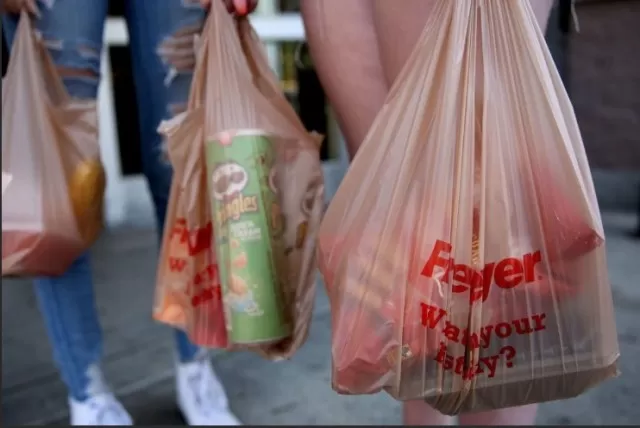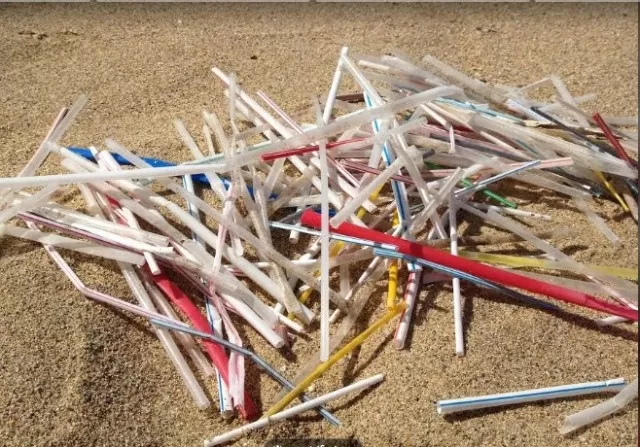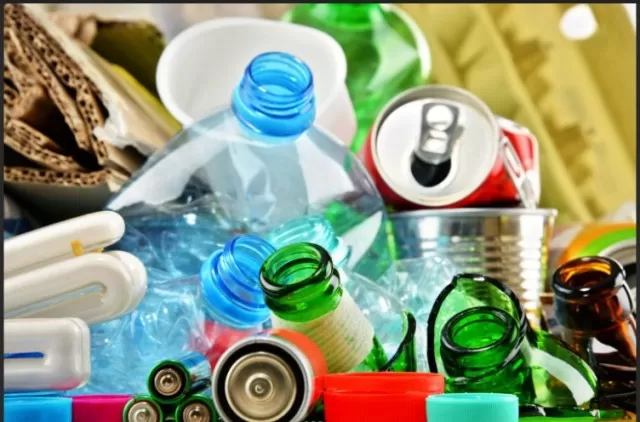Effortless Strategies for Reducing Waste (Part 1).There’s an undeniable issue festering in the United States, and it’s centered around our mounting trash problem. On average, each American generates a staggering 4 pounds of trash daily. While this might not seem significant individually, when you multiply it across the population, it amounts to over 200 million tons of waste annually. To put it in perspective, that’s enough waste to fill Busch Stadium twice a day, as estimated by the EPA.
Clearly, the question of where to put all this trash looms large. With American waste being shipped to southern states and even across international borders, it’s evident that we’re far from finding a definitive solution.
In the grand scheme of things, the most viable long-term solution is to produce less trash. Reducing waste not only contributes to a cleaner environment but also offers the potential to save thousands of dollars annually for the average American household. Continue reading to discover some of the simplest steps you can take to curtail waste, leading to a more straightforward and sustainable life.
Embrace Sustainability: Bid Farewell to Plastic Bags

The staggering statistic speaks for itself: a colossal 1 trillion plastic bags are consumed globally each year, as reported by the Earth Policy Institute.
What’s even more alarming is the fact that these plastic bags take a staggering 1,000 years to decompose, burdening our environment and often finding their way into our city parks, beaches, and even the very fish we consume.
To take a meaningful step towards reducing plastic bag waste and safeguarding our planet, consider the simple act of carrying your own reusable shopping bags.
By making this eco-conscious choice, you not only minimize your contribution to plastic pollution but also actively promote a sustainable lifestyle.
For those looking to take their commitment to sustainability a step further, investing in reusable produce bags is an excellent option.
These bags serve as a responsible choice for containing fresh fruits, vegetables, herbs, or bulk bin staples during your visits to the local grocery store or farmer’s market. .
By making these small yet impactful changes in your Daily Routine, you contribute to a cleaner, healthier planet, one less plastic bag at a time.
Sip Sustainably: Make Your Beverage Habits Eco-Friendly
Let’s embark on a little thought experiment: Take a moment to tally up the disposable cups you routinely use at your local coffee shop, workplace, or during outdoor gatherings each month.
Now, envision a scenario where you could reduce that number to zero. While it may appear insignificant, the impact is substantial – a staggering 108 billion disposable cups end up in landfills across the United States every year, as per a study by Technomic.
The key to reducing this environmental burden lies in making a simple switch to a reusable mug, like the one featured here.
These versatile mugs are designed to accommodate both hot and cold beverages, making them an ideal choice for various settings. .
Whether you’re heading to a picnic, your workplace, or a local cafe, bringing your reusable cup along can lead to positive changes on multiple fronts.
Not only do you significantly cut down on disposable cup waste, but many establishments also reward your eco-conscious choice with discounts for opting to bring your own cup.
By embracing this small change in your daily routine, you become part of a larger movement working towards a more sustainable future, where every sip is a step in the right direction for our planet.
\”Cut Waste, save money: A Food Sustainability Journey\”

Here’s a startling fact: The average American family of four discards a staggering 25% of the food stocked in their fridge, pantry, and freezer.
What’s even more astonishing is that all this wastefulness translates to over $2000 in squandered grocery funds each year. But fear not, there are practical steps you can take to save both your hard-earned cash and reduce your ecological footprint.
Start by making a conscious effort to downsize those large-batch recipes to better suit your family’s needs.
This not only minimizes food waste but also ensures you’re not overspending on ingredients. Additionally, freezing a portion of leftovers for future use can be a lifesaver on busy midweek evenings when you need a quick and convenient meal option.
Moreover, adopting proper produce storage techniques can significantly extend the shelf life of your fruits and vegetables.
For instance, green onions, broccoli, herbs, asparagus, and celery thrive when stored upright in a glass with an inch or two of water at the base. This clever method allows these plants to absorb water through their stalks, maintaining their freshness and flavor for a few extra days compared to traditional horizontal storage.
By implementing these practical strategies in your daily life, you not only reduce food waste but also contribute to a more sustainable, budget-conscious, and eco-friendly household.
Celebrating with Care: A Sustainable Approach to Gatherings
In the realm of picnics and barbecues, the convenience of paper plates, plastic silverware, and disposable cups has become the norm.
However, it’s essential to recognize that this transition to single-use dinnerware has been a gradual and costly one, both in terms of finances and its environmental impact.
As you prepare for your next outdoor gathering in the backyard or by the beach, consider making a conscious choice to embrace sustainability.
Instead of relying on disposables, opt for a reusable set of dishes and utensils. By making this eco-friendly switch, you not only reduce the waste generated during your festivities but also contribute to a more environmentally responsible approach to celebration.
Alternatively, carrying a well-equipped picnic basket with all the essential items, including reusable dinnerware, can be a practical and stylish way to ensure your gatherings are not only enjoyable but also aligned with sustainable values.
In doing so, you take a step towards preserving our planet while creating cherished memories with friends and family.
Effervescent Eco-Friendliness: A Sustainable Sip

The fizzy water trend has surged in popularity, with a staggering 42% increase in consumption since 2012, as reported by NPR.
However, this rise in popularity has come at a cost—an increase in waste stemming from glass and plastic bottles, as well as aluminum cans.
Fortunately, there’s a sustainable solution that not only reduces the clutter in your recycling bin but also trims your grocery expenses.
SodaStream water carbonators offer a transformative answer to this environmental challenge. By utilizing a recyclable CO2 cylinder and the simple push of a button, you can effortlessly transform tap water into sparkling water.
Whether you prefer it plain, with a hint of lime, or a splash of flavored syrup, this eco-conscious choice ensures there’s no waste to contend with.
With SodaStream, you can indulge in your favorite bubbly refreshment without generating any trash, contributing to a cleaner, more sustainable planet, one sip at a time.
*The information is for reference only.